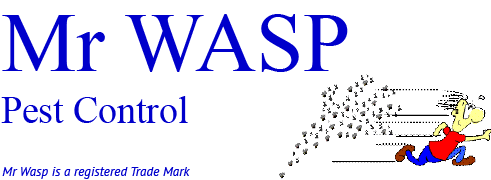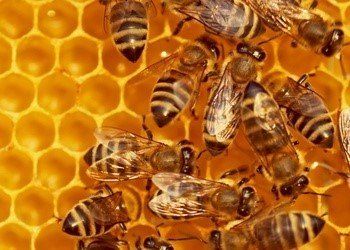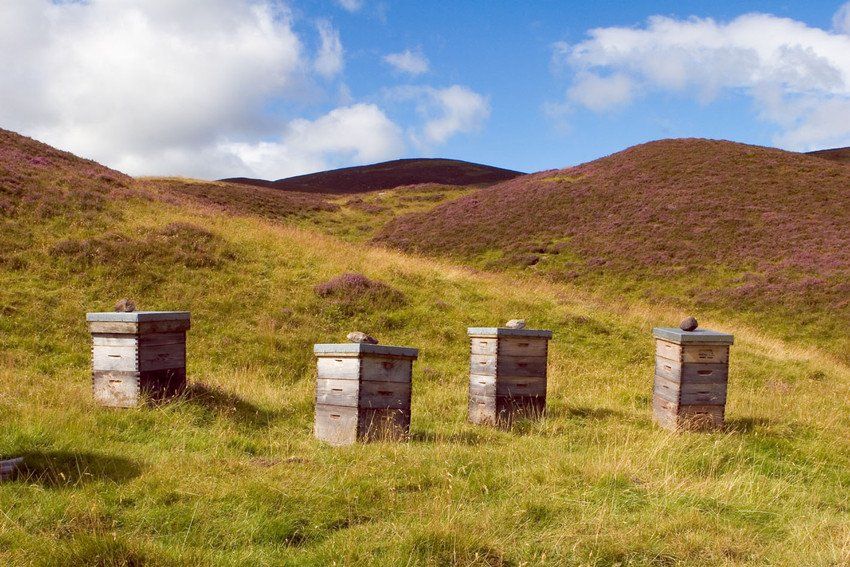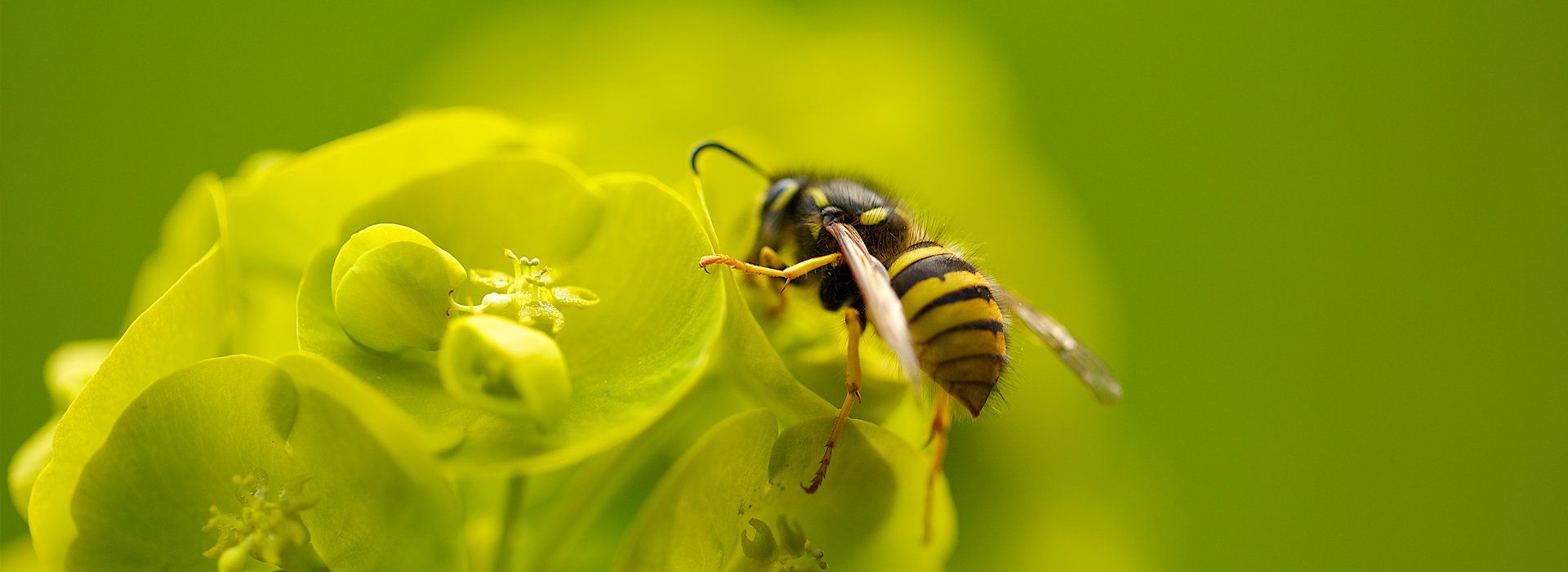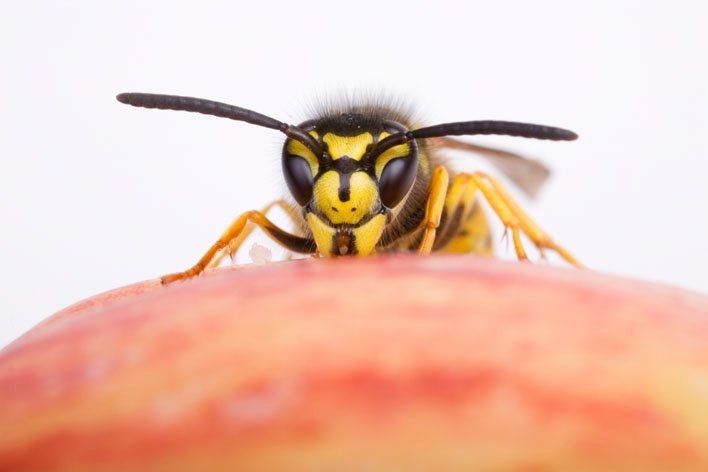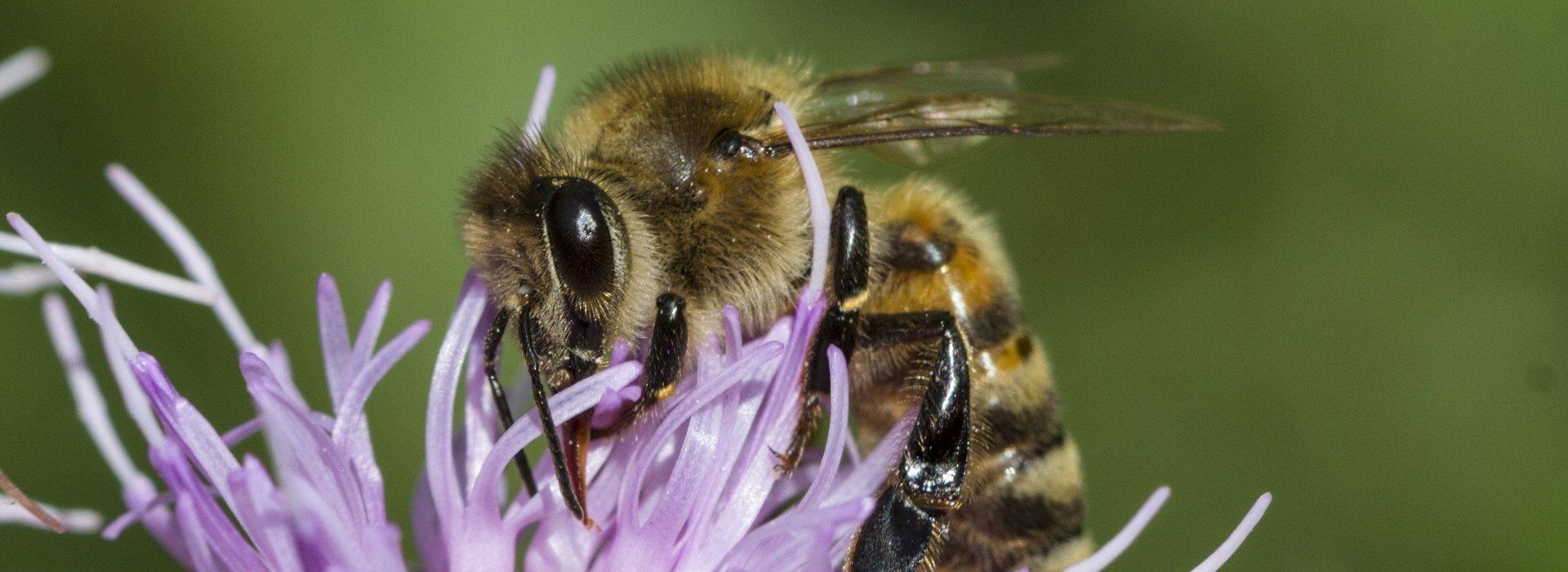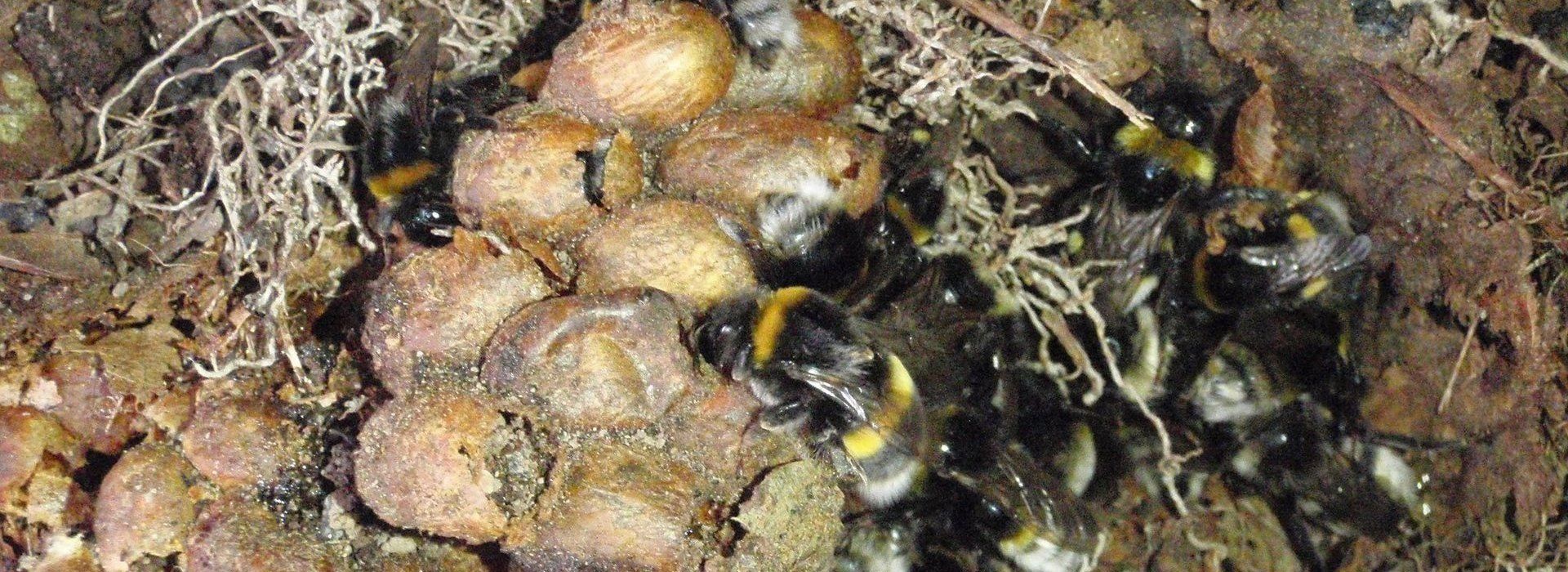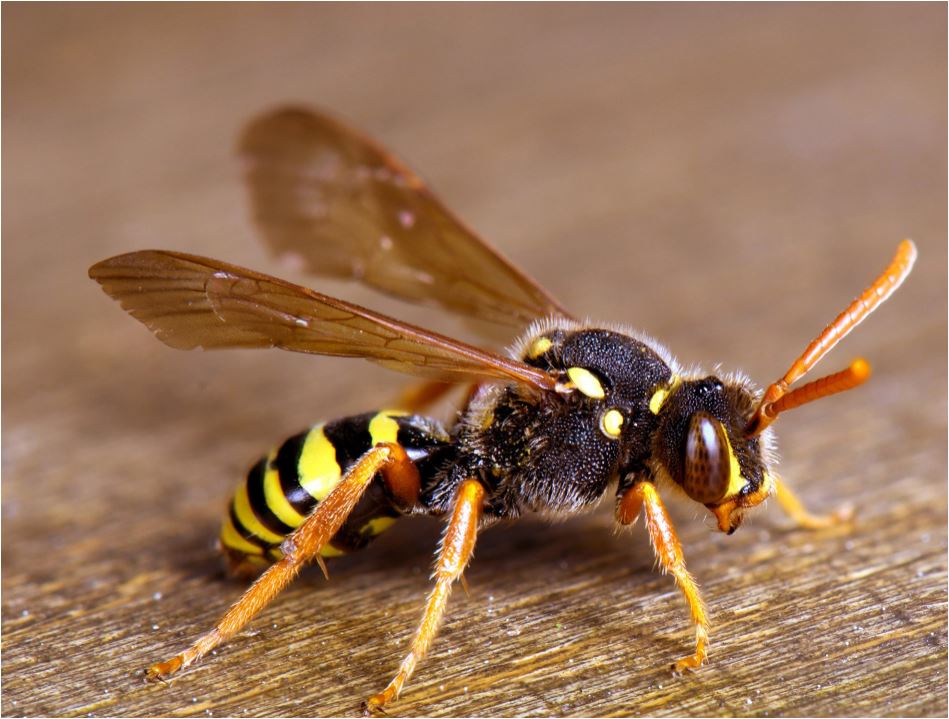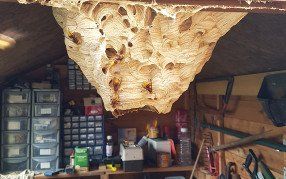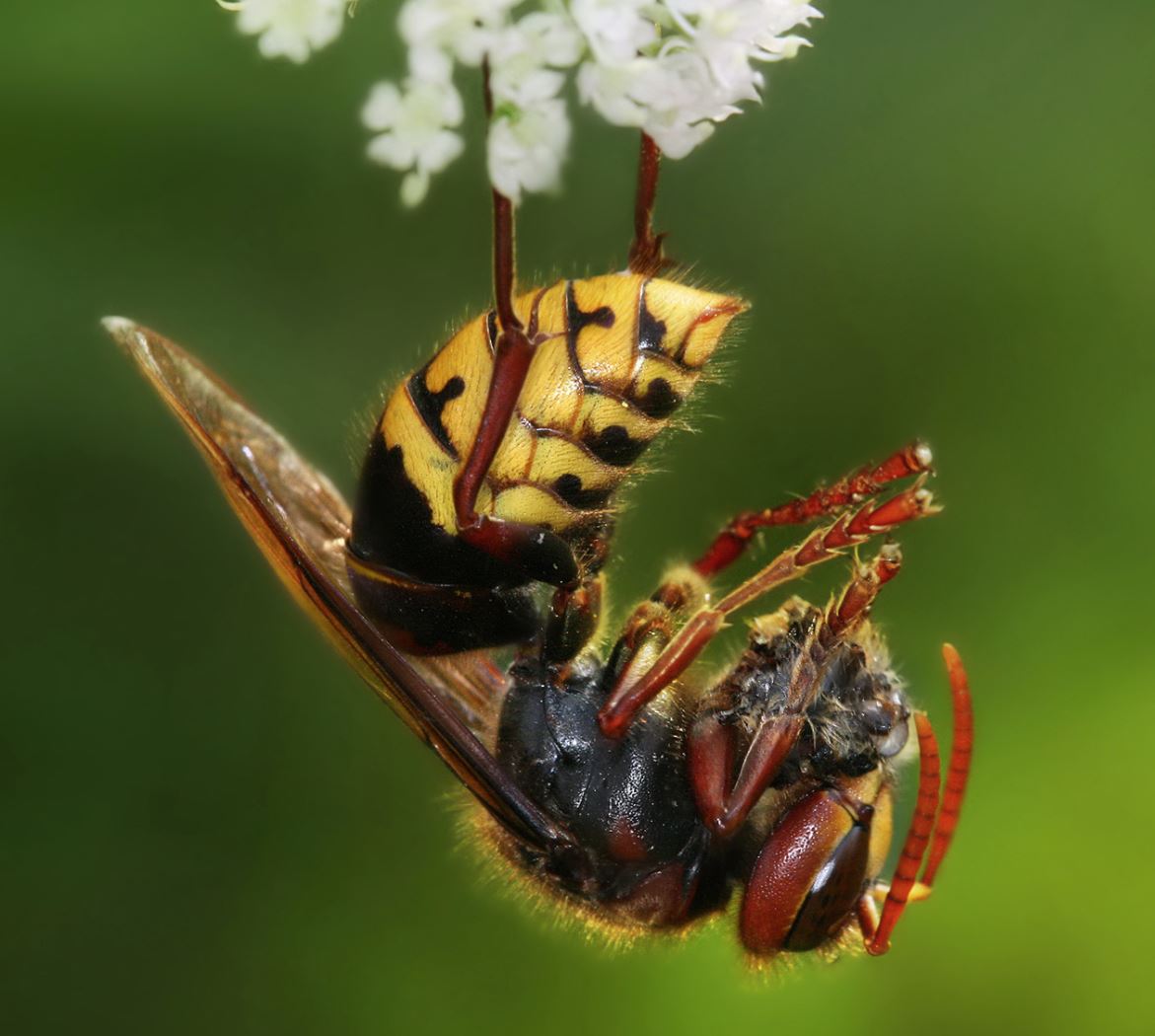What to Do When You Find Bees in Your Home
We all know that bees are pollinators and good for the environment, but when they invade your home, it can be a little terrifying. Do you know how to react when you discover bees have appeared in your home? For many people, it can be quite shocking to discover a hive in or near your home, particularly if the bees seem aggressive.
First off, don’t panic. If you’re allergic to bees or have anyone in the house who is, get them away from the home immediately. From there, you can determine the best course of action, based on the following information.
Don’t Kill the Bees
Before you go any further, please avoid killing bees or using poison sprays on them. Bees are already vanishing from the world and it’s important to keep them around. Using sprays and poisons is a bad idea, as it can affect your pets, as well as the bees. They’re an important part of the ecosystem and should be encouraged.
That being said, there are certainly some worries if you find a bee nest somewhere it shouldn’t be, like under a trampoline your children are about to jump on or in the entrance of your home. In these cases, you need to eliminate the bees as fast as possible, but this is where it’s helpful to call in some experts. They can remove the bees without any issues so you can relax.
How Many Bees Are There?
The number of bees will determine your actions. One or two can easily be shooed out an open window. Be careful, as they may crawl on the floor, which puts you and pets at risk of stepping on them. Even a handful of bees isn’t a big issue and they may have entered your home through an open window or door to reach food or water that you have left out.
If you’re noticing an inordinate amount of bees flying around inside your home, you can open all windows and wait to see if they will leave on their own. If they don’t after a few hours, it’s time to seek out where they’re coming from and to possibly call in some reinforcement.
Take a minute to watch the bees and see if you can figure out where they are coming in. Are they flying in through a window, or coming out of a vent? This will give you a better idea of whether or not there is a hive inside the house. Take a walk outside and circle your place, watching for bees. You may notice that they are hanging out around a specific area, or even moving in and out of a crack or hole in your outer wall. This would indicate there’s a hive in your home.
You may also be able to follow the bees and see where the hive is even if you can tell they’re not building in your house. Look in trees and bushes, as well as around outbuildings. Often, the hive will be higher up, but on rare occasions, they may build it lower to the ground, such as under a porch or even a car that has been sitting for a while.
When should you call the experts? When you find that there is a hive in or very near your home, it’s a concern that should be addressed by an expert bee removal company.
How Dangerous Are Bees?
Bees tend not to be very aggressive in most cases. If they’re swarming (see below), they will be particularly docile. However, they can get riled up if they feel the hive or their queen is threatened, which is when most stings happen. If you are stung by one bee when there are a lot of them around, it’s possible that more than one will sting you, so it’s in your best interest to walk away from the area they’re in and find a secure place to wait.
Bee stings are painful and can cause a welt, but are only life-threatening if you are allergic to their venom. When one of these insects stings you, it means they leave their stinger, along with the venom sac, in your skin. Pinching it to remove it will only squeeze more venom into the wound, so carefully use something flat, such as a credit card, to scrape the sac and stinger from your skin. The bee will automatically die once it has stung you, unlike the wasp, which can sting again and again.
While some breeds of bees are more aggressive than others, the vast majority won’t bother you if you don’t get in their way. This is why it’s best to simply walk away from the hive and let the experts come in and deal with it.
Bee Swarms
A swarm of bees is a large number of bees in a clump that may hang from a tree branch, a porch railing, or a windowsill. They will crawl over each other and fly close by but tend to stay bunched up in a large group. These swarms can be larger than a basketball and may look quite alarming. This simply means that a group of bees is moving their queen to a new location and they are waiting while scouts find the new home.
Bees in a swarm are quite docile and while you should stay away from them, they aren’t likely to sting. If you simply leave them alone, the swarm will move on once they have a suitable place to move to. However, if you want to get rid of them quickly, you need to call in some experts or even a regular beekeeper to take the swarm off your hands.
The bee expert will move the queen into a cage and then leave the whole thing open so the rest of her bees follow her. Once most of them are captured, they will then take the box away and you should be left bee free.
Hiring Experts
Once you’ve determined that you need an expert to come in and handle the bees, it’s time to find the right company. You’re looking for a pest control company with experience in handling bees. If you can’t find the hive, let them know this and they will come prepared to scope it out.
How to Prevent Bees
Want to keep bees away from your home in the future? Here are a few ways you can do exactly that.
Put in screens: Screening your windows and doors will keep all insects from getting into your home without limiting how much fresh air you can let in. They’re fairly simple to install and can virtually eliminate the bee problem.
Block any tempting holes: Inspect the outside of your home, top to bottom, and take care to block any holes in the siding or attic that may give bees a way to get in and build a hive. However, you should never do this if there is currently a hive in your home, since blocking the entrance can cause the bees to become agitated.
Eliminate traces of hives: If you did have a hive in the wall or anywhere else on or in your house and it was professionally removed, you need to eliminate all traces of it. This ensures more bees won’t be attracted to the smell of honey, which can also bring in other types of animals and insects. Be sure to close any entrances, as well.
Avoid leaving sweets out: Honey, jam, and other sweet items are likely to tempt bees and wasps, as well as other types of insects. If scouts find something that is of interest to the other bees, there will soon be a number of them crowded around whatever sweet you’ve left out.
Clean spills immediately: Whenever something spills, clean it up quickly so nothing comes in, attracted by the smell. Water, juice and even food can be attractive to bees, as well as ants, wasps, and other creatures.
By taking steps to avoid letting bees into your home in the first place, you won’t need to get rid of them.
Need a Bee Expert?
If you are dealing with a bee problem, give Mr Wasp a call. We have plenty of experts who can help you rid your home of unpleasant pests without harming the bees or causing damage to the environment. Contact us today!
